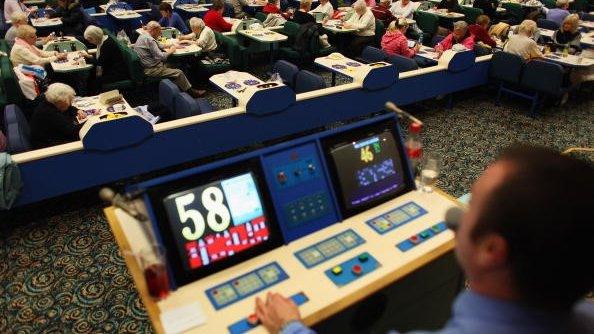Why the British may be falling back in love with bingo
- Published
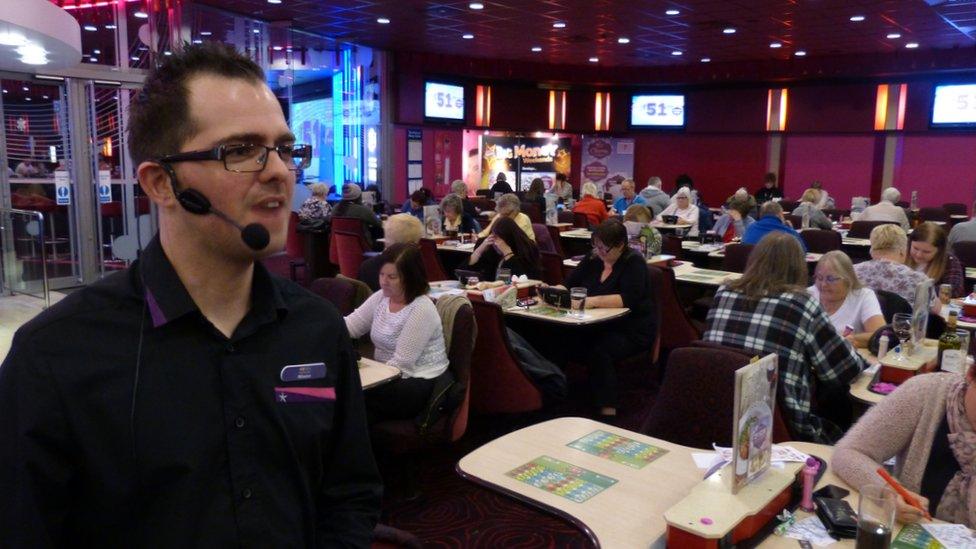
The word itself brings to mind a draughty hall populated by coated ladies, eyes lowered in reverence, like devoted church-goers paying homage from their pews to a god of guilty pleasures.
But contrary to belief, bingo is no dying religion. UK clubs still have 45 million visits a year, and the game's followers are getting younger every year.
Furthermore, for the first time in nearly seven years the UK will this month see the opening of a brand-new 1,000-seat venue, in Southampton.
Customers will enjoy a "pub feel", with sofa seats, music, and the ambiance of a night club. It will certainly be no silent cathedral.
The opening is one reason why experts anticipate that, after years of falling revenues, we will spend over £30m a year more on bingo by 2019.
So, in an era of electronic and online pleasures, what on earth is it about bingo that still appeals?
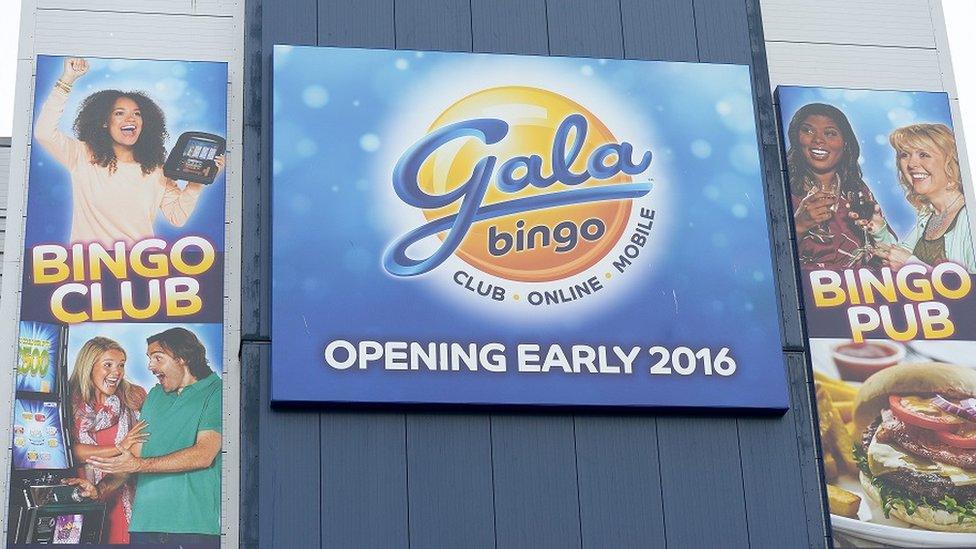
The Gala site in Southampton will be the first completely new venue for seven years
'A good buzz'
On a Wednesday night, two weeks before Christmas, 350 enthusiasts are packed into a bingo hall (actually the company prefers the word 'venue' - it sounds more modern) in the suburbs of Nottingham.
With few empty seats, it is what players might justifiably call a full house.
"On its own, number three," announces caller Winston Baugh, as he strides between tables.
But traditional bingo like this now only takes up half the club.
While an older generation of devotees listens in silence to the caller, there is also a lounge area with a much more irreverent feel.
Here players can chat or text, while they keep one eye on the bingo. They can even play on an electronic tablet, which automatically keeps track of the numbers.
"It's a shush-free environment, where music and talk is allowed," says Stuart Colthart, Mecca Bingo's area manager.
"You get quite a good buzz in here."
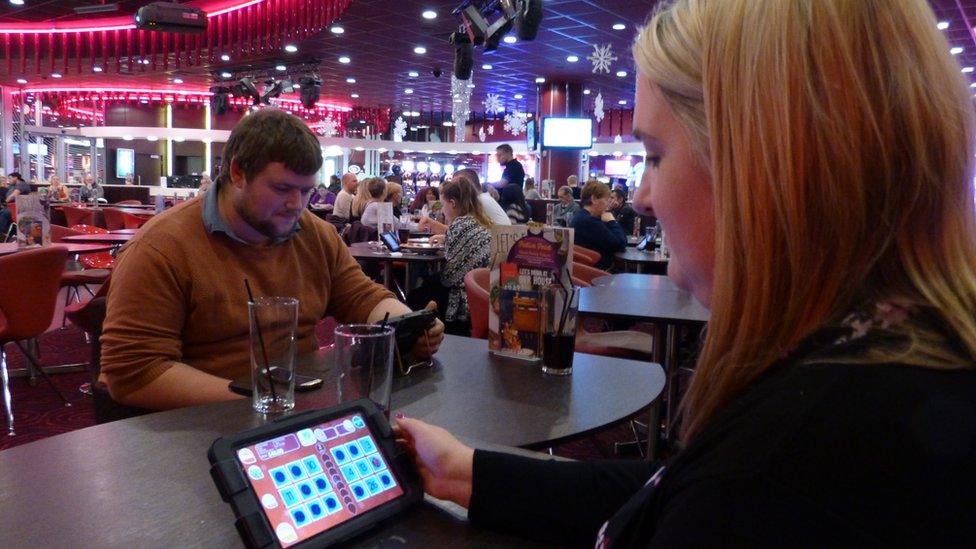
Chris and Lisa Norman are regulars at the club in Nottingham, and play on tablets
Age target
Amongst the younger players enjoying the lounge are Chris Norman, who's 28, and his sister Lisa, who's 32.
It was they who introduced their mother to the game, not vice-versa.
"This is my second night this week," enthuses Chris. But he admits he gets teased by his friends, some of whom think bingo is distinctly un-cool.
"I don't know if it's cool, but most of the people in here are not old," says Lisa.
"We get up to 10 people round the table on someone's birthday. It's a whole family thing."
The industry is working hard - and succeeding - in attracting players like Chris and Lisa.
"We're not necessarily after 18-24 year-olds," says Stuart Colthart.
"If we could get the average age down to 41 or 45, we'd be happy."
But he has some way to go to reach that target. Currently the industry average is about 61 or 62.
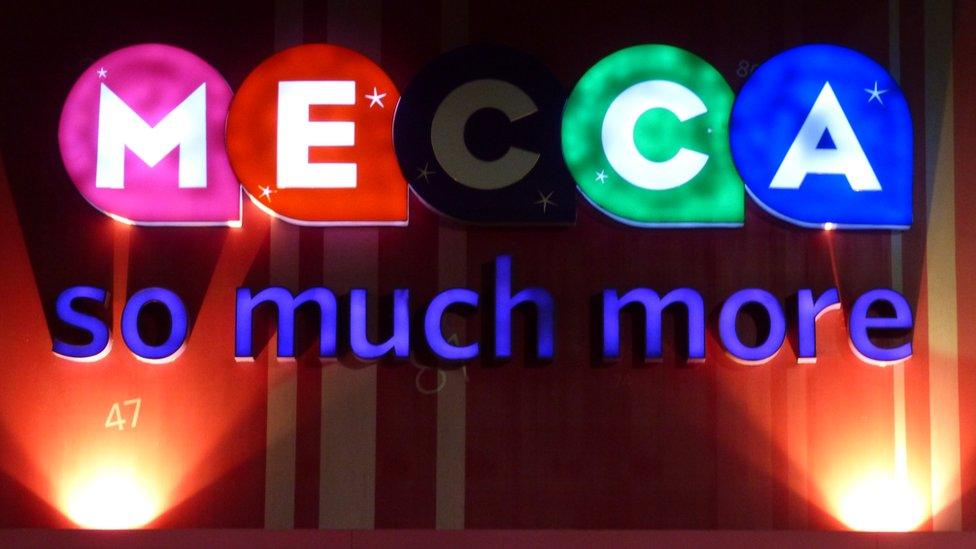
Marshmallows
On Friday and Saturday nights at the Mecca club in Nottingham it is house party time.
Often that will include rock and roll bingo, where players have to tick off particular tracks as they hear them.
In fact there is everything from Elvis impersonator nights, involving karaoke, to family games like rock, paper, scissors.
One favourite is "How many marshmallows can I stuff in my mouth?"
"You put as many marshmallows in your mouth as you can; then it's the person who can say 'fluffy bunny' best who wins," says Winston Baugh.
This may bring to mind some post-war holiday camp. But in an era when people sometimes only talk to telephones, it is also real interaction; and self-evidently it is fun.
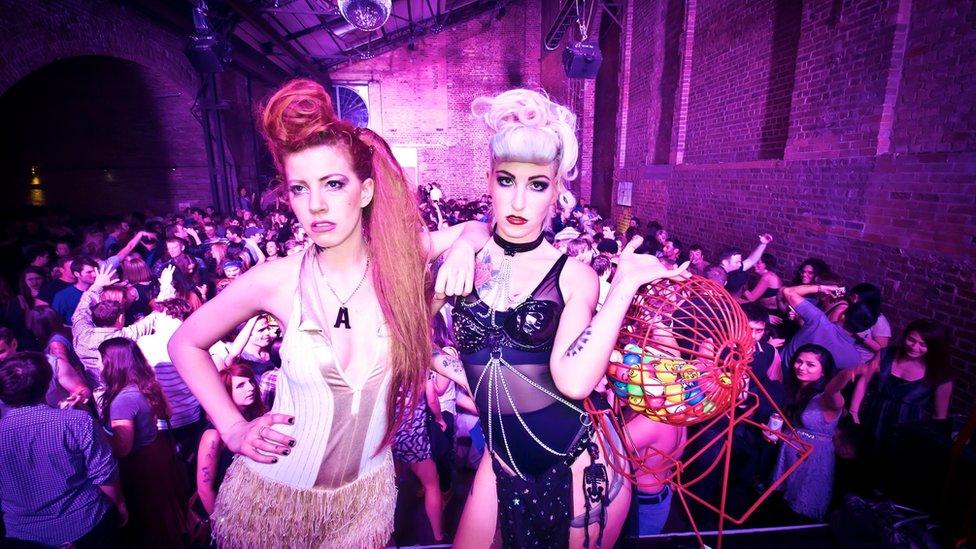
Rebel bingo is catching on in London
'Rebel' bingo
If you want something truly alternative - which packs in crowds of young people - there is also Rebel Bingo, external, which is proving a big hit in Camden, north London.
The music is loud, the atmosphere is more like a party in Ibiza, and traditional bingo players would hate it.
Party-goers are issued with bingo cards, but there the similarity ends.
"There is music and DJs and lots of lights, and confetti," says one of the founders, Freddie Sorensen.
"People call out numbers. People dab off numbers. Some people win prizes, some people don't."
Students seem to catching the bug too. Possibly because the food and drink is cheap.
"Twenty years ago we would never see a student in a club," says Simon Wykes, the chief executive of Gala Bingo, which is opening the new Southampton venue.
"Now, in some clubs, students make up 20% of the customer base."
UK Bingo: The numbers
354
total venues
-
Gala: 132
-
Mecca: 93
-
Others: 129
'Alive and kicking'
In March 2014, the Chancellor George Osborne declared that the number of bingo halls had plummeted by three-quarters over the last 30 years.
After much lobbying by the industry, he then halved the tax on bingo hall profits from 20% to 10%.
The action seems to have had the desired effect.
While fifteen clubs shut their doors in 2014, ten closed in 2015. Now the industry believes the long-term decline may finally be over.
"The reduction has stabilised," says Miles Barron, chief executive of the Bingo Association.
"The decline of bingo has halted, and we have great confidence that volumes will go back up."

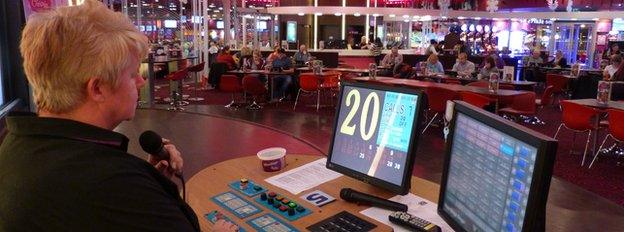
"There is no chance of this industry dying. We are very much alive, kicking and ready to grow."
Simon Wykes, CEO Gala Bingo

That claim is reinforced by the research group Mintel. It forecasts that spending in UK bingo halls will rise from £690m in 2014, to £728m by 2019, largely as a result of the chancellor's duty reduction.
The private investment group Caledonia certainly has confidence in the future, having just bought Gala's bingo operations for £241m.
And while Gala itself admits that we may not have seen the last of club closures, it believes the British will never give up on bingo.
"There is no chance of this industry dying. It's been stable for so long," says Simon Wykes.
"We are very much alive, kicking, and ready to grow."
- Published26 October 2015
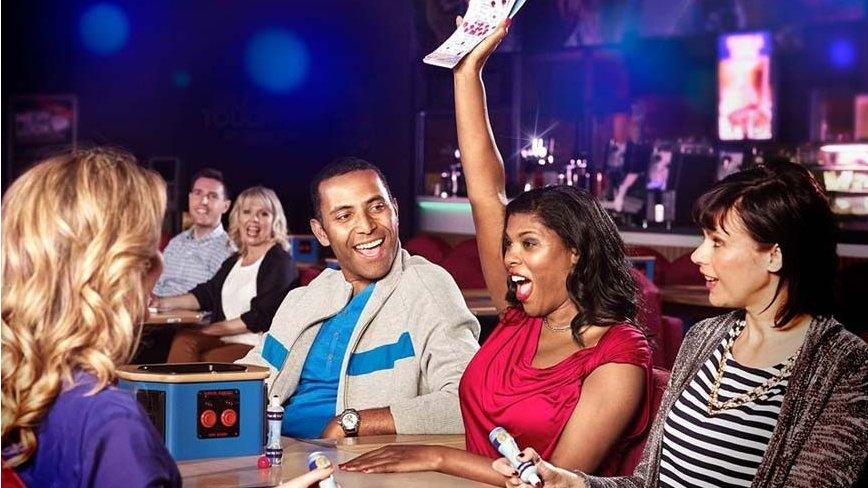
- Published19 March 2014
